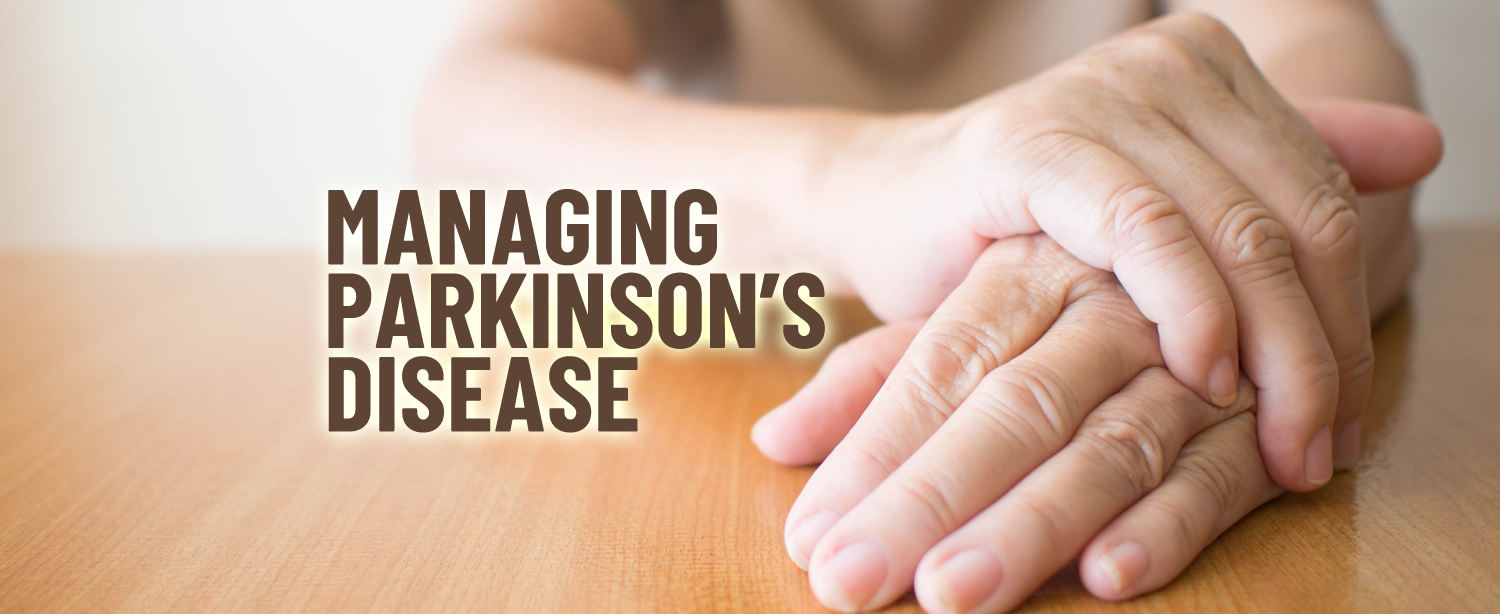Finding simple daily tasks like making breakfast, going to answer the phone, getting a glass of water, writing a shopping list exhausting? This may be due to Parkinson’s disease. You may look good, but you may feel entirely different from the way you look. Parkinson’s exhaustion makes it difficult to move, as though you don’t have any energy left. You may also suffer from a debilitating mental exhaustion, sometimes called Parkinson’s apathy, which impairs focus and makes it difficult to begin a task, follow directions or recall information.
Don’t give up!Parkinson’s disease is a type of movement disorder that affects the nervous system and is a chronic and progressive disease. As per statistics, India has 7 million elders afflicted with Parkinson’s disease. Early diagnosis, timely intervention and treatment that includes medication and surgery helps manage this disease and control its progression.
Symptoms of Parkinson’s disease
Many people mistaken Parkinson symptoms for normal signs of aging and may ignore them. However any early signs of Parkinson’s disease must be discussed with a doctor. Here are a few signs and symptoms that need attention:
- Movement: There may be a tremor in the hands
- Coordination: A reduced sense of coordination and balance may lead to falls and dropping of items held
- Gait: The person’s posture may change and they may lean forward
- Facial expression: This can become fixed
- Voice: There may be a tremor in the voice, or the person may speak more softly
- Handwriting: This may become more cramped and smaller
- Sense of smell: A loss of sense of smell can be an early sign
Mood changes, difficulty chewing and swallowing, problems with urination, constipation, skin problems, sleep problems are some other symptoms. When you have Parkinson’s disease, the nature of the disease makes you more prone to suffering from mental health disorders like depression. It is important for the care giver to recognize this on time and seek appropriate counselling assistance for the patient.
Living healthy with Parkinson’s disease.
Have you been diagnosed with Parkinson’s disease? Your focus should be on improving your symptoms and maintaining an active and positive lifestyle. There is currently no cure for this disease, however it is possible to successfully manage symptoms through healthy choices, medications, and in select cases medical procedures too. Here are a few health tips to follow:
1. Exercise Regularly
When you have Parkinson’s disease, a regular fitness regime helps give you flexibility, better balance, less anxiety and depression, improved co-ordination and added muscle strength
2. Prevent falls
Balance problems can make falling a real concern when you have Parkinson’s. Here are a few things to keep in mind:
- Plant your heel first when you take a step
- Don’t move quickly
- Work to keep your posture straight as you walk
- Try not to carry anything when you walk
In spite of these steps if you find yourself falling often consider using a cane or a walker to help you move safely.
3. Sleep well
Sometimes, Parkinson’s can get in the way of a good night’s sleep and may lead to sleep problems. Create a relaxing pre-bedtime routine and follow it every night and maintain your sleep schedule.
4. Eat a healthy diet
It’s common for Parkinson’s disease to cause bone thinning, dehydration, weight loss, and constipation. Here are a few nutrition tips to follow:
- Eat a variety of whole grains, vegetables, and fruits every day
- Stay away from saturated and trans fats
- Limit sugar, salt, and sodium
- Say “No” to alcohol
- Stay hydrated
- Have foods high in vitamin D, magnesium, vitamin K, and calcium for bone strength
- Take your medications
Being regular with your medicines helps manage the motor symptoms of Parkinson’s disease well.
Parkinson’s treatment at Kokilaben Dhirubhai Ambani Hospital
We understand the impact Parkinson’s disease can have on you and your loved ones. The loss of independence can be frustrating and emotionally draining for patients and carers alike. Our Centre for Neurosciences is committed to therapies that help improve the patient’s quality of life and help them regain the ability to perform their daily activities.
Meet renowned neurologists who are supported by state of the art technology to diagnose, treat and rehabilitate people with Parkinson and Movement Disorders. Our Parkinson’s Clinic offers a comprehensive screening and care program and is equipped with advanced facilities like a gait and balance lab, 3 tesla MRI, surgical suite and intratop MRI, and rehabilitation care.
Our Total Parkinson care program includes:
- Movement Disorder Specialist Consultation
- Physiotherapy
- Speech and swallowing therapy
- Dietary Counselling
- Psychology Consultation
The team manages over 7430 Parkinson’s disease patients each year with their unmatched expertise. For further information please visit: https: www.kokilabenhospital.com


